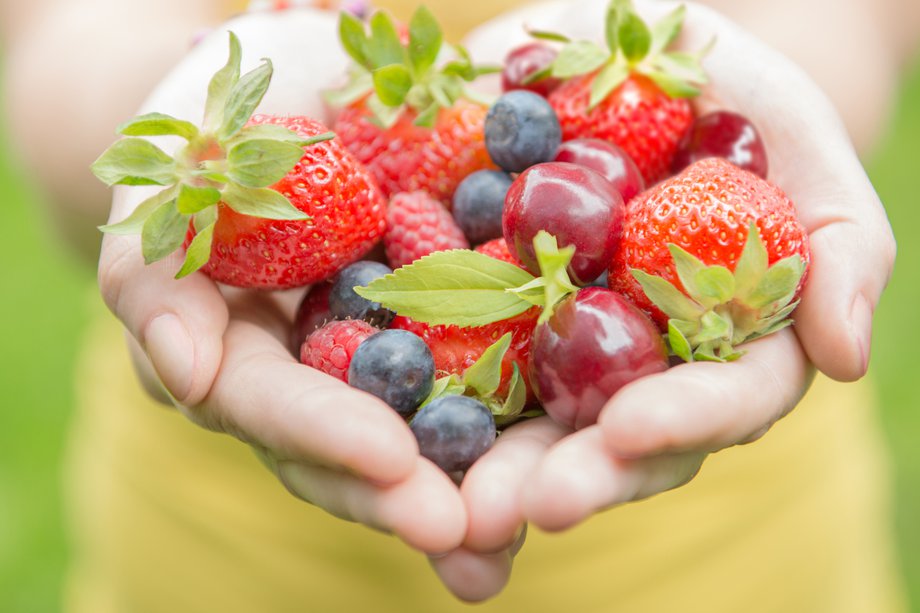These 8 practical tips cover the basics of healthy eating and can help you make healthier choices.
1. Base your meals on higher fibre starchy carbohydrates
Choose higher fibre or wholegrain varieties, such as wholewheat pasta, brown rice or potatoes with their skins on. They contain more fibre than white or refined starchy carbohydrates and can help you feel full for longer. Keep an eye on the fats you add when you’re cooking or serving these types of foods because that’s what increases the calorie content.
2. Eat lots of fruit and veg
It’s recommended that you eat at least 5 portions of a variety of fruit and veg every day. They can be fresh, frozen, canned, dried or juiced. A 150ml glass of fruit juice, vegetable juice or smoothie also counts as 1 portion, but limit the amount you have to no more than 1 glass a day as these drinks are sugary and can damage your teeth.
3. Eat more fish, including a portion of oily fish
Aim to eat at least 2 portions of fish a week, including at least 1 portion of oily fish. Oily fish are high in omega-3 fats, which may help prevent heart disease. You can choose from fresh, frozen and canned, but remember that canned and smoked fish can be high in salt. Most people should be eating more fish, but there are recommended limits for some types of fish.
4. Cut down on saturated fat and sugar
Saturated fat. On average, men should have no more than 30g of saturated fat a day. On average, women should have no more than 20g of saturated fat a day. Children under the age of 11 should have less saturated fat than adults, but a low-fat diet is not suitable for children under 5. Saturated fat is found in many foods, such as: fatty cuts of meat, sausages, butter, hard cheese, cream, cakes, biscuits, lard, pies
Sugar. Regularly consuming foods and drinks high in sugar increases your risk of obesity and tooth decay. Food labels can help. Use them to check how much sugar foods contain. More than 22.5g of total sugars per 100g means the food is high in sugar, while 5g of total sugars or less per 100g means the food is low in sugar.
5. Eat less salt: no more than 6g a day for adults
Eating too much salt can raise your blood pressure. Use food labels to help you cut down. More than 1.5g of salt per 100g means the food is high in salt. Adults and children aged 11 and over should eat no more than 6g of salt (about a teaspoonful) a day. Younger children should have even less.
6. Get active and be a healthy weight
As well as eating healthily, regular exercise may help reduce your risk of getting serious health conditions. It’s also important for your overall health and wellbeing. If you’re trying to lose weight, aim to eat less and be more active. Eating a healthy, balanced diet can help you maintain a healthy weight.
7. Do not get thirsty
You need to drink plenty of fluids to stop you getting dehydrated. The government recommends drinking 6 to 8 glasses every day. This is in addition to the fluid you get from the food you eat. Remember to drink more fluids during hot weather or while exercising.
8. Do not skip breakfast
Some people skip breakfast because they think it’ll help them lose weight. But a healthy breakfast high in fibre and low in fat, sugar and salt can form part of a balanced diet, and can help you get the nutrients you need for good health.

